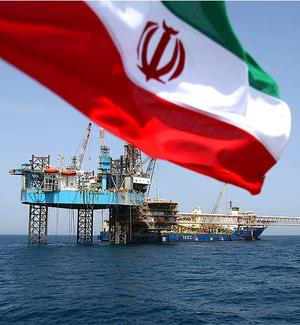By Alberto Perego
Iran has the largest gas reserves in the world, and the 4th largest oil reserves. Its current oil production capacity is around 3.6 million barrels a day, and it is no secret that, with the sanctions lifted, Iran plans to increase production up to 5 million barrels a day. This is not an easy task in the context of oversupply in the international oil market. To achieve this goal, it is not enough to simply have low production costs of about $5-8 USD per barrel and an easy extraction environment. At the current stage, the essential condition is advanced extraction technology and locked-in sales volumes. In order to guarantee these two conditions, Iran announced it has developed a special type of contract – the Iranian Petroleum Contract (IPC).
In Iran, the property of natural resources is severely regulated at a high juridical level. In fact, there is a constitutional provision banning private or foreign ownership of natural resources. Article 45 of the Iranian Constitution clearly states, “Public wealth and property, such as uncultivated or abandoned land, mineral deposits, seas, lakes, rivers and other public waterways, mountains, valleys, forests, marshlands, natural forests, unenclosed pastures, […] shall be at the disposal of the Islamic government for it to utilize in accordance with the public interest. Law will specify detailed procedures for the utilization of each of the foregoing items.” This is a situation that often happens in oil producing countries, and usually to grant access to foreign capital and technologies in their markets they adopt contracts known as Host Government Contracts.
So far, Iran has used a system of buyback schemes to finance the exploration and development of its natural resources. These schemes are risk service contracts under which the contractor is paid with a portion of the hydrocarbons produced by employing its services. Paybacks tend to have short time frames of around five to seven years. At the end of the contract, the developed field goes back to the National Iranian Oil Company (NIOC).
These contracts are not very comfortable for international oil companies (IOCs). The main complaints are that the buyback scheme has proved to be too inflexible on several occasions, and that it granted limited returns. Moreover, this type of contract was designed in a way that made it difficult for IOCs to put a ceiling on their capital costs.
The IPC is intended as a fresh start in relations between the NIOC and IOCs as it proposes several innovative solutions that are especially interesting for the IOCs. Firstly, the IPC will have a duration of about 20-25 years. This will allow a much better and longer cost recovery period. Secondly, there will be a risk-reward element linked to the complexity of fields. Companies will be paid higher fees for very high-risk fields both on and offshore, and lower fees for low-risk onshore fields.
While the two points mentioned above are favorable for the IOCs, there are also at least two provisions favorable for Iran, its NIOC and its other oil companies. The IPC is designed to take advantage of foreign companies’ marketing expertise and give Iran access to their supply network to find an export market, a crucial feature in these times of oil oversupply. Another advantage for the NIOC and Iran is the fact that any dispute arising under the IPC will be subject to the exclusive jurisdiction of the Iranian courts. International companies may not feel too comfortable with this provision, and would probably prefer international arbitration, or international courts.
Whether this new juridical tool will successfully serve its purpose depends on many factors, from Iran keeping up its promises in nuclear matters to the willingness of the investors to put capital in the oil markets in times of oil oversupply. However, the IPC is an interesting new contract and is definitely an important step forward for Iran to come back to pre-sanction oil and gas production.
Dave Forest. The Start Of Something Big? Iran Changes Oil Contracts. OilPrice.com. September 23, 2016. http://oilprice.com/Energy/Crude-Oil/The-Start-Of-Something-Big-Iran-Changes-Oil-Contracts.html
Oil & Gas 360. New Iranian Oil Contracts Unlikely To Attract Big Oil. OilPrice.com. August 10, 2016. http://oilprice.com/Energy/Energy-General/New-Iranian-Oil-Contracts-Unlikely-To-Attract-Big-Oil.html
Dalga Khatinoglu. Tougher oil investment problems for Iran than 2 decades ago. Trend News Agency. November 12, 2015. http://en.trend.az/business/energy/2455706.html
Iranian Constitution. http://www.alaviandassociates.com/documents/constitution.pdf
Iranian Constitution English translation taken from the website of Alavi and Associates. http://www.alaviandassociates.com/

